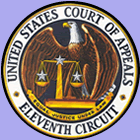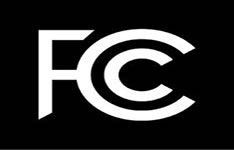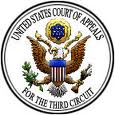Companies that hire vendors to place automated calls to cell phones may find themselves at greater risk for Telephone Consumer Protection Act troubles following a decision from the Ninth Circuit Court of Appeals in Thomas v. Taco Bell Corp. The recent decision follows a May 2013 ruling from the Federal Communications Commission in In re Dish Network, LLC, that applied an expanded view of liability for a vendor’s conduct (also known as “vicarious liability”). Widening the TCPA Trap for Vendor Conduct What the FCC said in In re Dish Network, LLC is that TCPA liability is not limited to the “classical” theory of a company’s responsibility for its vendor’s wrongdoing, the theory being that a company is…
Posts published in “TCPA”
According to a blog post made by Federal Communications Commissioner Michael O’Rielly, immediate changes are needed to the Telephone Consumer Protection Act to address the flood of litigation caused by its own “complex and unclear” rules. Citing changes in business models and methods of communications he notes that the FCC’s rules have become “complex and unclear” and suggests that clarification would benefit all parties impacted by the TCPA. Another concern voiced by the Commissioner is the fact that TCPA complaints have increased by 30 percent in the past year and that there is a growing backlog of petitions to the FCC…
I’ll be heading to Park City, Utah this weekend for the Winter Meeting of the American Bar Association’s Consumer Financial Services Committee. The focus of the CFSC is on all things in consumer financial services law — payment systems, deposit accounts, fair lending and yes, debt collection. This meeting is going to feature several panel discussions with officials from the Consumer Financial Protection Bureau and the Federal Trade Commission along with well-known consumer advocates all discussing issues surrounding debt collection. Enforcement actions, the recent ANPR, TCPA litigation and CFPB regulation of attorneys are among the topics we’ll cover. As always, this…
A federal judge in Pennsylvania has ruled that the Telephone Consumer Protection Act does not apply to debt-collection calls, even calls made to cellular telephones. A copy of the decision is available here. Noting that Congress enacted the TCPA to address telemarketing, the decision relied upon a portion of the Eleventh Circuit Court of Appeals’ decision in Meadows v. Franklin[ref]414 F. App’x 230, 235 (11th Cir. 2011)[/ref] which stated, “the [Federal Communications Commission] has determined that all debt-collection circumstances are excluded from the TCPA’s coverage.” The decision is certainly in the minority as nearly all courts examining the issue have determined that debt-collection calls made…
Yesterday, the Third Circuit Court of Appeals held that the Telephone Consumer Protection Act (47 U.S.C. § 227) allows a consumer to revoke her prior express consent to be called using an autodialer or prerecorded voice. In its decision, Gager v. Dell Financial Services, the Circuit Court reversed a district court’s earlier finding that once a consumer provided consent to receive autodialed or prerecorded calls, a consumer cannot later revoke the consent. Persons using autodialer technology or prerecorded messages are required by the TCPA to obtain the “called party’s” “prior express consent” before making their calls. While some types of calls…
Some relief has come to those using preview dialers to make telemarketing or informational calls to cell phones. The court in Nelson v. Santander[ref]Nelson v. Santander Consumer USA, Inc., 2013 U.S. Dist. LEXIS 40799 (W.D. Wis. Mar. 8, 2013)[/ref] vacated its opinion of March 8, which held that preview dialers were automatic telephone dialing systems subject to regulation by the Telephone Consumer Protection Act [ref]47 U.S.C. 227[/ref]. The order was entered on June 7, on a joint motion and stipulation made by the parties. The case was dismissed, with prejudice, that same day. The order vacating the March 8 opinion is here. While…
The FTC has ordered the California company Skyy Consulting, Inc., which provides robocalling services to its clients as CallFire, to pay a $75,000 fine and stop all illegal telemarketing robocalls as part of a settlement between the parties. The Federal Trade Commission had charged Skyy Consulting with violating the Telemarketing Sales Rule (TSR), by helping its clients place robocalls to consumers without their written consent. The TSR does not prohibit calls that provide informational recorded messages, such as flight information, school delays, etc., nor does it apply to calls regarding the collection of a debt. Intended to stop unwanted sales…









